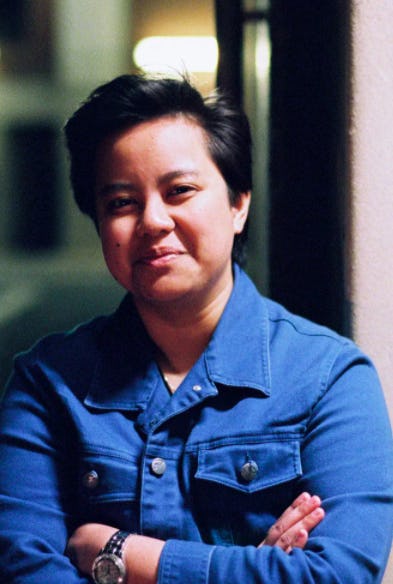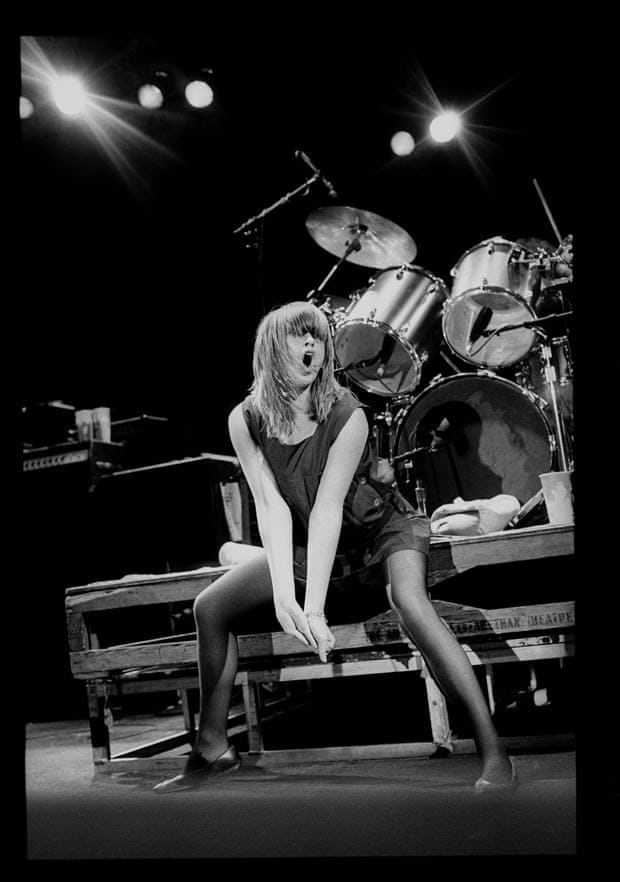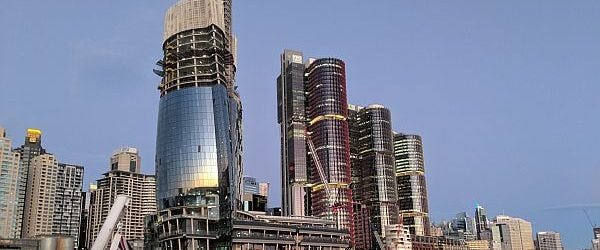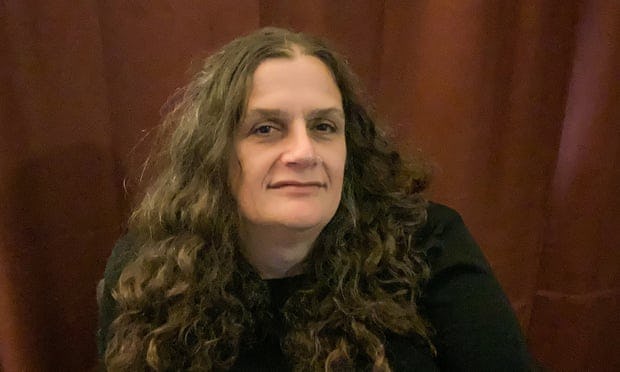Your Favourite Things
Tiffany Tsao • 10 December 2021
If you’re reading this, you’ve miraculously managed to crawl to the almost-end of 2021. Perhaps you’re unspeakably happy. Or maybe you’re too traumatised by the year’s events to know how you feel. Possibly, you’d prefer to turn back time and relive it all sans fear and lockdowns and deaths. Whatever your emotions and thoughts...here we are.
What more apt way to recognise the diversity of 2021’s lived experiences than to see what different people read and listened to and found most striking? This year-end issue of The Circular consists entirely of recommendations sent in by readers in response to the question, 'What was your favourite online non-fiction read of 2021 and why?'
There are some common themes in the recommended pieces presented here: the struggles of lockdown life; the failure of larger structures to protect the interests of the vulnerable and the general public; but also, the surprising discoveries that bring us joy – in translation, in poetry, in photography.
Much gratitude to everyone who wrote to us with suggestions. And a warm thank you to all our readers for making our debut year such a special one. We’ll be back in late January!

heaven towards what
Darlene Silva Soberano, Footscray Community Arts Writes
This astonishing piece on the succour offered by poetry in crisis comes highly recommended by Shu-Ling Chua.
'Poetry, meanwhile, calls to its own insufficiency. Poetry lends itself well to crises because it does not pretend that it can fix the crisis alone – not materially, or even psychically. When Sealey writes, "How have we managed our way / to this bed – beholden to heat like dawn / indebted to light," she is signaling to the fact that love – especially one that endures – is not accidental; it is built out of responsibility. Beholden. Indebted. This responsibility can only appear in the poem because it is realised outside of the poem, in the real world, where difficult emotional work is undertaken.'
Untying the Tongue – The Elusive Art of Interpreting
Elizabeth Bryer, Kill Your Darlings, July 2011
Yumna Kassab sends in this favourite read of her year, written by literary translator Elizabeth Bryer and originally published in 2011. 'I find translation fascinating, and this is ten years old – and interesting that it’s from Elizabeth’s early translation years...eggs without their clothes...hehe.'
'I concentrated on finding an alternative until I mentally restructured my sentence into: "Would you like me to remove the eggs’ shells?" But the alternative was worse because there were now two words I didn’t know how to render – the verb "to remove" and the noun "shell". Which led me to try again, this time resorting to thinking metaphorically. Bingo. A thrill surged through me; I was able to make myself understood.
"Mamá."
"Yes, darling?"
"Would you like the eggs without their clothes?"
(Screech of laughter.) "Yes darling, I want them nude! Nude is exactly how I want them!"'
Loss Statement
Eda Gunaydin, Sydney Review of Books, October 2021
Eileen Chong sends in this essay about writing grinding to a halt during lockdown: 'I really enjoyed the humanism and groundedness, as always, of Eda Gunaydin’s essay on not writing – which as we all know is an essential aspect of writing.'
'During this period I have been incapable of doing anything: positively haemorrhaging cash, deadlines (which used to structure my day-to-day existence), and career goals (which used to propel me) feel distant and insubstantial. I develop the habit of weakly remarking about some missed deadline or another, "What are they gonna do, come to my house?"'

PJ Harvey, Sonic Youth, Madonna: the unseen archives of rock photographer Tony Mott
Kirsten Krauth, The Guardian, October 2021
This article comes to us by way of Gordon Duncan, who writes: 'Reading Kirsten Krauth’s interview with Tony Mott in The Guardian brought back fond memories of reading RAM and JUKE music magazines and seeing Tony Mott’s incredible photography in them.'
'She lived the lyrics. She lived them. Everything was honest and she meant it and she delivered. And she once complained that she saw another artist, and she said, "They’re acting." I said, "What do you mean?" She said, "They don’t mean it. They’re acting."'
The death Uber Eats disowned
Patrick Begley, Background Briefing, June 2021
This episode of Background Briefing from ABC Radio National comes from Eda Gunaydin (coincidentally, the author of one of the recommended pieces above!): 'It really stuck with me as an empathetic and effortful piece of journalism that delves into the scourge of food delivery services and the gig economy, who have basically kept us aloft throughout 2021, but who we are often inclined to treat as non-people, given their class & migrant worker status.' (Note on access: this audio recording is accompanied by a transcript.)
'Burak cancelled his last delivery at 12.25pm. He was hit by the truck at 12.50pm. So he fell outside this critical insurance window by 10 minutes.
10 minutes which meant that in the eyes of Uber Eats, he wasn't at work and that made the difference between nothing and upwards of 400,000 dollars.'

What makes an icon? On the design and disposition of Sydney’s architecture
Joshua Taylor, Overland, August 2021
'The thesis of the following essay struck home,' writes Ben Etherington. 'Particularly, that the Barangaroo casino is an icon of an unregulated market that is parasitic in its very form on the icons of the past created by public investment. I think of it every time I look at the building, which, unfortunately, is unavoidable!'
'The Australian ugliness is not the absence of beauty; it’s only partly an aesthetic question. It is the lack of strong design principles, the Featurist impulse to distract and dazzle rather than develop cohesive responses to the competing functional, economic and aesthetic demands we make of architecture, responses that should service the current needs and future aspirations of users. How could such a significant redevelopment of public land be so skewed to the interests of one party?'
Everybody Knows – Episode 3: A Broken System
Ruby Jones, 7am, September 2021
Elisabeth Kramer recommends this entire five-part investigative podcast series, and this episode in particular: 'It's about sexual harassment in the music industry but also why #metoo never took off in Australia. I like the way it approaches victims' stories and really contextualises them in relation to existing networks and hierarchies.' (Note on access: this is an audio recording.)
'What lawyers can tell you is that for all of the high-profile cases that end up going to trial – there are few of them – there are so many more defamation threats that are sent to newspapers and to women threatening defamation proceedings…and this is the unseen problem, the problem that you don’t see, which is the amount of proceedings which are threatened which ultimately result in people self-censoring and not speaking publicly.'

Not quite blak enough: ‘The people who think I am too white to be Aboriginal are all white’
Claire G. Coleman, Guardian Australia, November 2021
Lynda Ng observes: 'It's a sad indictment of our society that Claire G. Coleman felt the need to outline why her mixed-race heritage does not preclude her from being Aboriginal. But doing so performs an important service for those who continue to regard race as a fixed category. She explains here why she identifies as Aboriginal instead of with her colonial ancestry, and this piece provides a taste of the acerbic insights into Australian settler society to be found in her book Lies, Damned Lies.'
'It was the racist, settler colonialism that created whiteness, that created blackness, half-caste, quarter-caste, octoroon, that saw mixed-race people as a third race. Now those same wadjelas, who defined us as black, now want to call us white if we are not black enough for their liking.'